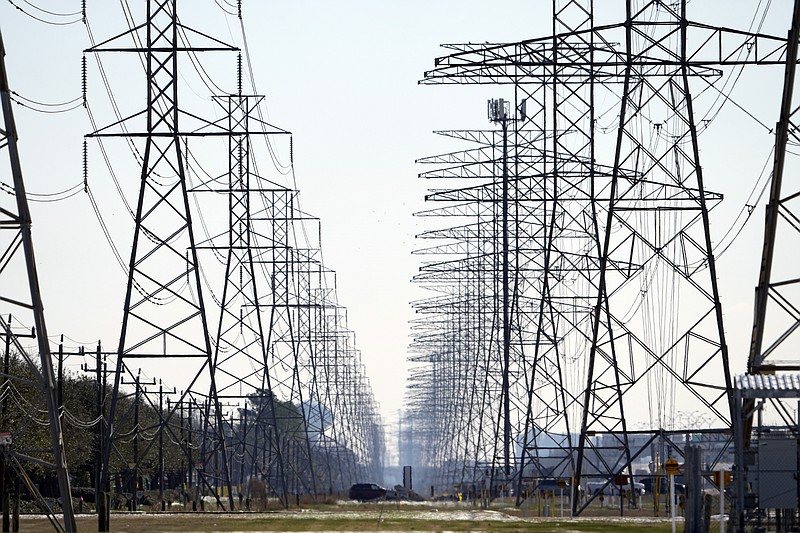AUSTIN, Texas -- When an unusually harsh winter storm blanketed much of Texas with snow, knocking out electricity to millions of homes and leaving many struggling to find clean water, one sector of the population was particularly vulnerable: inmates at the state's largest county jail.
Raul Carreon, a pretrial inmate at the Harris County jail, said it became freezing cold and "pitch black" when the power went out on Feb. 14. Then, he said, the lockup lost water pressure, so toilets wouldn't flush, leading to waste "backing up in the commodes."
A boil-water notice was issued for the region, but Harris County inmates didn't have that option and had to risk using water straight from the taps, Carreon said.
"Sanitation is very minimal, the smell here reeks of urine and feces," said Carreon during a phone call Feb. 19 arranged by the Texas Jail Project, an advocacy organization.
Krish Gundu, co-founder and executive director of the Texas Jail Project, said her organization checked in with inmates in at least 20 Texas counties in the wake of the storm and that the conditions Carreon described were the norm -- even worse in smaller counties.
Carreon -- who, according to jail records, is scheduled for trial in April on eight charges including aggravated robbery with a deadly weapon -- said he lives in a pod with more than 20 men.
He said food was rationed in the days after the storm, and that some meals were just cornbread or a peanut butter and jelly sandwich with water. Tensions were running high in his unit, because of the small meals and restricted access to phones.
Elizabeth Rossi, a senior attorney with the Civil Rights Corps -- a nonprofit that aims to fight injustices in the American legal system -- said she received a number of reports of jail food being rationed after the storm and said the restricted access to phones at Harris County means inmates struggled to "check if their loved ones are OK and let them know that they are not."
"I think this highlights how unprepared Texas and Texas jails are for climate crisis like these that are going to be happening increasingly in the future," Rossi said
The Harris County sheriff's office denied it had restricted inmates' access to food and water in the days after the storm.
"There were no food rations," the office said in a Feb. 19 statement. "Bottled drinking water is being distributed during the boil water notice."
It conceded that the jail system was "hit with brief periods of having no power and/or plumbing throughout this event," but insisted the Harris County jail had regained full power and water pressure. The office disputed complaints about the jail being too cold, saying the temperature inside never dropped below the state's minimum of 65 degrees.
The issues were not restricted to county jails, although the Texas Department of Criminal Justice said state jails and prisons had been ready for the winter crisis. Jeremy Desel, a spokesman for the agency, said virtually all 102 of its facilities were affected by the storm. He said 32 units lost power and operated on generators but have since had power restored. He said 33 units temporarily experienced low water pressure.
But, he said, the state took significant steps to prepare, including distributing blankets, jackets and water.
Prison-rights advocates say inmate complaints related to the storm were not restricted to Texas. Some correctional facilities in Louisiana had intermittent electricity and frozen pipes, affecting toilets and showers. One inmate at a facility near Baton Rouge described ice on the walls inside his cell.

